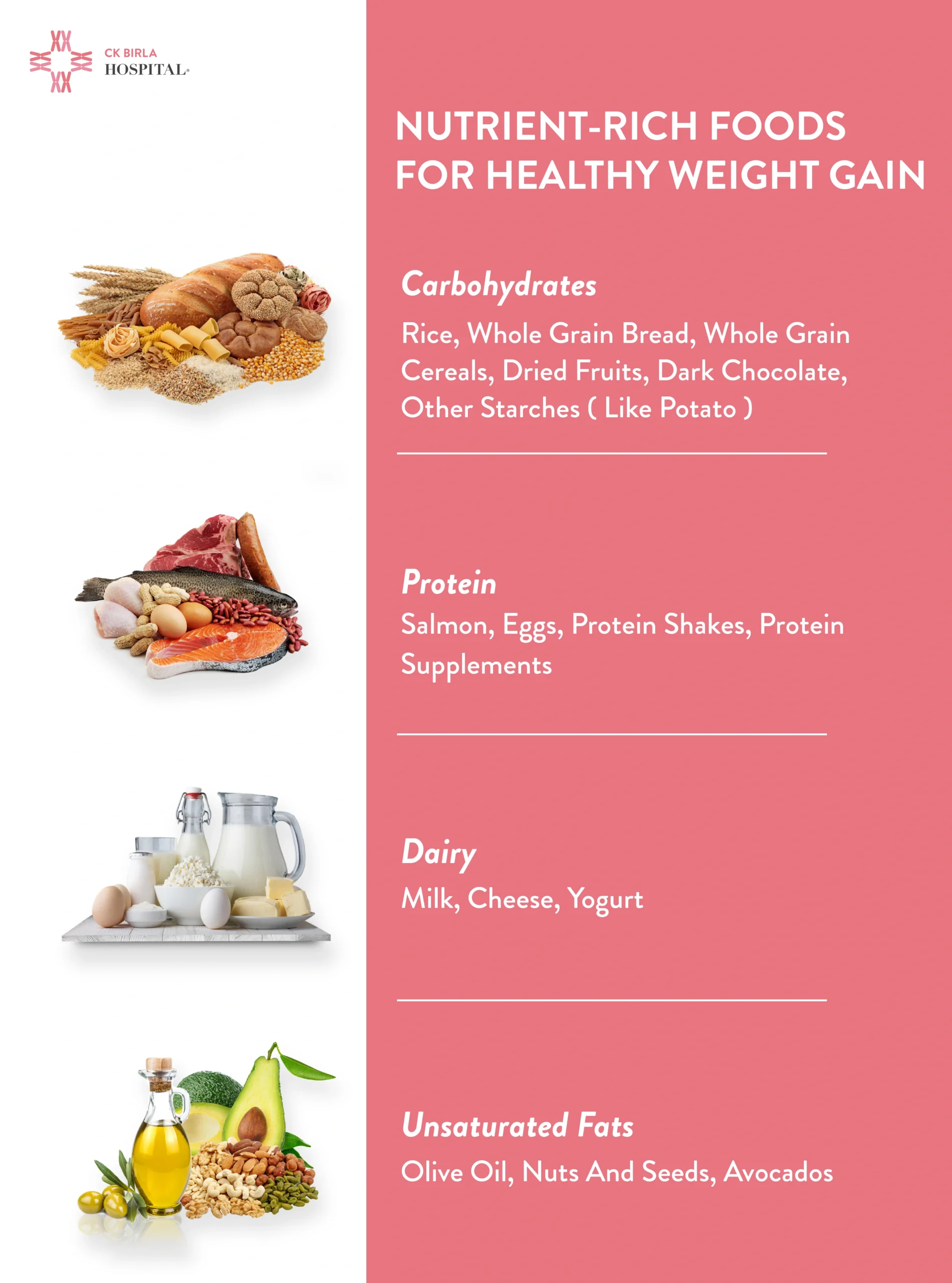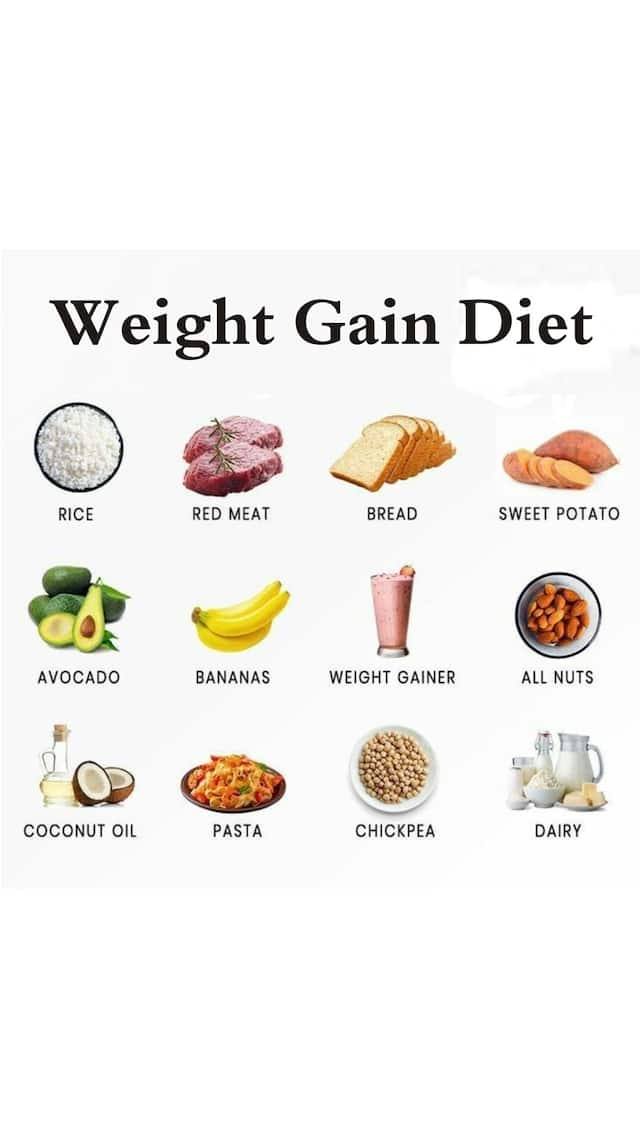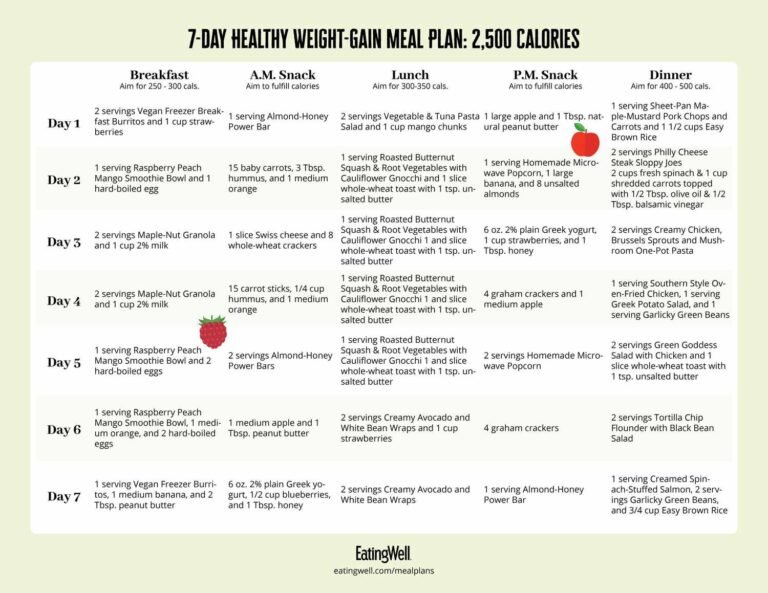Are you struggling to gain weight as a female? You’re not alone.
Many women face this challenge. Gaining weight can be as tough as losing it. For women, it often requires a well-thought-out diet plan. A balanced approach ensures you gain healthy weight. This blog will guide you through a weight gain diet plan designed for females.
We’ll explore nutrient-rich foods and effective strategies. A proper diet can help you achieve your goal without compromising your health. Whether you’re underweight or just looking to add muscle, this plan is for you. So, let’s dive in and discover how you can start gaining weight the healthy way!

Credit: www.pinterest.com
Introduction To Weight Gain For Women
Weight gain is not only about adding numbers on the scale. For women, gaining weight can mean building muscle and improving overall health. A focused diet plan can help achieve these goals.
Importance Of Healthy Weight Gain
Gaining weight in a healthy way is crucial. Here are some reasons why:
- Boosts Immunity: A balanced diet strengthens your immune system.
- Improves Energy Levels: More calories can lead to increased energy.
- Enhances Muscle Mass: Protein-rich foods help build muscle.
Common Misconceptions
There are many myths about weight gain, especially for women. Let’s clear some up:
- Myth: All weight gain is unhealthy.
Fact: Gaining muscle is healthy. - Myth: You need to eat junk food to gain weight.
Fact: Nutritious foods can help you gain weight. - Myth: Gaining weight means getting fat.
Fact: Proper diet leads to healthy weight gain.
Setting Realistic Goals
Setting realistic goals is crucial for a successful weight gain journey. Unrealistic expectations can lead to frustration. So, it’s important to have a clear plan. This includes determining your target weight and creating a reasonable timeline.
Determining Target Weight
First, decide on a healthy target weight. Consult with a healthcare provider for guidance. They can help you set a realistic weight goal based on your body type and health.
Consider factors like your current weight, height, and body composition. Aim for a weight that makes you feel strong and healthy. Avoid comparing yourself to others.
Creating A Timeline
Next, create a timeline for reaching your target weight. This helps you stay focused and motivated. Set small, achievable milestones. For instance, aim to gain 1 to 2 pounds per month.
Track your progress regularly. Adjust your plan if needed. Celebrate small victories along the way. Remember, slow and steady progress is key to sustainable weight gain.
Nutritional Essentials
Understanding the nutritional essentials for a weight gain diet plan is vital. This knowledge ensures that you consume the right nutrients to achieve your goals. Let’s break down the key components of your diet plan.
Macronutrient Breakdown
Macronutrients are the foundation of your diet. They include proteins, carbohydrates, and fats. Each plays a unique role in helping you gain weight healthily.
Proteins: Proteins are the building blocks of muscles. Aim for lean sources such as chicken, fish, eggs, and beans. Consuming 1.2 to 2.2 grams of protein per kilogram of body weight is ideal.
Carbohydrates: Carbs provide the energy needed for workouts and daily activities. Choose complex carbohydrates like whole grains, sweet potatoes, and brown rice. These help sustain energy levels.
Fats: Healthy fats are essential. They support hormone production and provide concentrated energy. Include sources like avocados, nuts, seeds, and olive oil in your diet.
Vital Vitamins And Minerals
Micronutrients are just as important as macronutrients. They support various bodily functions and overall health. Here’s a breakdown of some vital vitamins and minerals:
| Vitamin/Mineral | Function | Sources |
|---|---|---|
| Vitamin D | Supports bone health and immune function | Sunlight, fatty fish, fortified milk |
| Calcium | Essential for strong bones and teeth | Dairy products, leafy greens, almonds |
| Iron | Helps in forming red blood cells | Red meat, beans, spinach |
| Vitamin C | Boosts immune system and skin health | Citrus fruits, strawberries, bell peppers |
| Zinc | Supports the immune system and metabolism | Meat, shellfish, legumes |
Incorporating these nutrients into your diet will help you gain weight in a healthy way. Balancing macronutrients and ensuring adequate intake of vitamins and minerals is key.
High-calorie Foods
Gaining weight in a healthy way is essential for women looking to build muscle and improve overall health. High-calorie foods play a crucial role in this journey. These foods provide the necessary energy and nutrients to help you achieve your weight gain goals. Let’s explore some options under healthy fats, protein-packed options, and carbohydrate-rich choices.
Healthy Fats
Healthy fats are dense in calories and vital for your body. Avocados are a great choice, packed with monounsaturated fats. Nuts and seeds, like almonds and chia seeds, offer a mix of healthy fats and protein. Nut butters, such as peanut butter or almond butter, are also excellent options. They can be added to smoothies, spreads, or eaten by the spoonful.
Protein-packed Options
Protein is essential for muscle growth and repair. Eggs are a versatile and rich source of protein. Lean meats, like chicken and turkey, provide quality protein without too much fat. Fish, such as salmon and tuna, offer protein and healthy omega-3 fats. Plant-based proteins, including tofu, lentils, and chickpeas, are great for those following a vegetarian diet.
Carbohydrate-rich Choices
Carbohydrates provide the energy needed for daily activities and workouts. Whole grains, like quinoa and brown rice, are packed with nutrients and fiber. Sweet potatoes and other starchy vegetables are excellent sources of carbs and vitamins. Fruits, such as bananas and mangoes, offer quick energy and natural sugars. Whole grain bread and pasta are also good options for adding calories.
Meal Planning Tips
Creating a weight gain diet plan for females involves strategic meal planning. It ensures an adequate intake of nutrients and calories. Here are some meal planning tips to help you achieve your goals.
Balanced Meal Ideas
A balanced meal should include proteins, carbs, and fats. A variety of foods ensures you get all necessary nutrients. Here are some ideas:
- Breakfast: Scrambled eggs with avocado on whole wheat toast.
- Lunch: Grilled chicken with quinoa and mixed vegetables.
- Dinner: Baked salmon with sweet potatoes and a side salad.
| Meal | Protein | Carbs | Fats |
|---|---|---|---|
| Breakfast | Scrambled eggs | Whole wheat toast | Avocado |
| Lunch | Grilled chicken | Quinoa | Mixed vegetables |
| Dinner | Baked salmon | Sweet potatoes | Side salad |
Snacking Strategies
Snacks can help you increase your daily calorie intake. Choose nutrient-dense snacks that provide proteins, carbs, and healthy fats. Here are some suggestions:
- Greek yogurt with honey and nuts.
- Peanut butter on apple slices.
- Smoothie with banana, berries, and protein powder.
Ensure your snacks are easy to prepare and carry. This makes it simple to stick to your plan. Remember, consistency is key in achieving your weight gain goals.

Credit: www.ckbhospital.com
Incorporating Supplements
Incorporating supplements can be an effective way to enhance a weight gain diet plan for females. Supplements provide essential nutrients that may not be fully met through diet alone. They can boost calorie intake and support muscle growth. Here, we will discuss two key supplements: protein powders and weight gain shakes.
Protein Powders
Protein powders are a convenient way to increase protein intake. They help build muscle and repair tissues. Many types are available, including whey, casein, and plant-based options. Choose one that fits your dietary needs and preferences. Mixing protein powder with milk or water makes a quick, nutrient-dense drink. Some prefer adding it to smoothies or oatmeal for a varied diet.
Weight Gain Shakes
Weight gain shakes are specially formulated to provide a high calorie count. They often contain a mix of protein, carbohydrates, and fats. These shakes can be used as meal replacements or between meals. Ready-made options are available, but you can also create your own. Blend ingredients like milk, fruits, and nut butter for a tasty, homemade shake. Consuming these regularly can help you achieve your weight gain goals.
Exercise And Weight Training
To gain weight, females need a balanced diet and a solid exercise plan. Exercise, especially weight training, helps build muscle. It also boosts metabolism. This section explores effective exercise routines.
Strength Training Routines
Strength training is key for muscle growth. Focus on compound exercises. These include:
- Squats
- Deadlifts
- Bench Press
- Overhead Press
Perform 3 to 4 sets of 6 to 12 reps. Rest for 60 to 90 seconds between sets. Increase weights gradually. This ensures continuous muscle growth. Track your progress with a workout log.
Cardio Considerations
Cardio is important but should not be overdone. Choose low-impact activities. Good options are:
- Walking
- Swimming
- Cycling
Limit cardio to 20-30 minutes, 2 to 3 times per week. This helps maintain heart health without hindering weight gain. Balance is key.
Monitoring Progress
Monitoring progress is a crucial aspect of any weight gain diet plan for females. It ensures that the changes you’re making are effective and helps in making necessary adjustments. This section will guide you through Tracking Daily Intake and Adjusting the Plan to achieve your weight gain goals.
Tracking Daily Intake
Keeping an eye on your daily intake is vital. It helps you understand the number of calories you consume. Use a food diary or an app to log what you eat. This practice can reveal patterns in your eating habits.
You should aim for a balanced diet. It includes proteins, carbohydrates, and healthy fats. Below is a sample table to track your daily intake:
| Meal | Food Item | Calories |
|---|---|---|
| Breakfast | Oatmeal with fruits | 300 |
| Lunch | Grilled chicken salad | 400 |
| Dinner | Quinoa with vegetables | 500 |
| Snacks | Nuts and yogurt | 200 |
Tracking allows you to ensure you meet your daily calorie goals. Make notes of your feelings and energy levels. This can help in understanding how your body reacts to certain foods.
Adjusting The Plan
After tracking your intake, you might need to adjust the plan. If you do not see progress, consider increasing your calorie intake. Add an extra snack or choose higher-calorie options.
Here are a few tips to adjust your plan:
- Increase portion sizes: Add an extra serving of your meals.
- Include calorie-dense foods: Avocados, nuts, and seeds are good options.
- Drink smoothies: Blend fruits, yogurt, and nuts for a calorie-rich drink.
Listen to your body. If you feel full, avoid forcing yourself to eat more. Gradually increase your intake to prevent discomfort.
Regularly check your weight and body measurements. This helps in understanding how your body is changing. Adjust your diet based on these observations. If your weight gain stalls, consult with a nutritionist for personalized advice.
Overcoming Challenges
Gaining weight can be as challenging as losing it. Especially for women. Many face obstacles. These hurdles can derail progress. But with the right strategies, you can overcome them. Let’s explore some common challenges and how to tackle them.
Dealing With Appetite Issues
Many women struggle with a low appetite. This makes it hard to eat enough. Try eating smaller, frequent meals. This can make eating more manageable. Incorporate high-calorie foods. Nut butters, avocados, and nuts are good choices.
Drinking calories can also help. Smoothies and shakes are nutritious and calorie-dense. Add protein powder, fruits, and healthy fats. This can boost your calorie intake without feeling too full.
Sometimes, appetite issues stem from stress. Practice relaxation techniques. Yoga and meditation can help. Reducing stress can improve your appetite.
Staying Motivated
Maintaining motivation is crucial. Set realistic goals. Track your progress. Celebrate small victories. These steps keep you focused and motivated.
Find a support system. Friends, family, or online communities can be encouraging. Share your journey with them. Their support can keep you going.
Visualize your success. Picture yourself at your goal weight. This mental image can inspire you. Keep reminding yourself why you started. Your reasons are your strongest motivators.
Remember, progress takes time. Be patient with yourself. Consistency is key. Stay committed to your plan. You will see results.

Credit: www.thehealthsite.com
Maintaining Healthy Curves
Maintaining healthy curves is about more than just gaining weight. It’s about achieving a balanced and attractive body shape while staying healthy. This requires a thoughtful and well-planned diet and lifestyle. Here, we explore long-term strategies and lifestyle adjustments to help you maintain your curves.
Long-term Strategies
Long-term strategies are essential for sustainable weight gain. Focus on a balanced diet rich in calories and nutrients. Include healthy fats, proteins, and carbohydrates. Avoid empty calories like sugary drinks and junk food. Stick to whole foods and home-cooked meals. Incorporate regular strength training exercises. This helps build muscle and enhances your curves. Consistency is key. Track your progress and adjust your plan as needed.
Lifestyle Adjustments
Simple lifestyle adjustments can make a big difference. Get enough sleep every night. Your body needs rest to build muscle and process nutrients. Stay hydrated. Drink plenty of water throughout the day. Manage stress through relaxation techniques like meditation or yoga. A calm mind supports a healthy body. Avoid smoking and limit alcohol consumption. These habits can hinder your weight gain efforts. Surround yourself with supportive people. They can motivate and encourage you on your journey.
Frequently Asked Questions
What Is A Good Diet Plan For Weight Gain?
A good diet plan for weight gain includes high-calorie, nutrient-dense foods. Focus on proteins, healthy fats, and complex carbohydrates. Include snacks between meals.
How Many Calories Should I Consume To Gain Weight?
To gain weight, consume more calories than you burn. Aim for 300-500 extra calories daily. Consult a nutritionist for personalized advice.
What Foods Help Females Gain Weight?
Foods that help females gain weight include nuts, seeds, avocados, whole grains, and lean proteins. Dairy products like cheese and yogurt are also beneficial.
Should I Include Protein Shakes In My Diet?
Yes, protein shakes can help increase your calorie intake. They are convenient and effective for muscle growth and weight gain.
Conclusion
Achieving weight gain goals requires a balanced diet and consistency. Focus on nutrient-rich foods. Include proteins, healthy fats, and whole grains. Small, frequent meals can help. Monitor your progress and adjust as needed. Stay patient and positive throughout your journey.
Consult a nutritionist for personalized advice. Healthy weight gain takes time. Keep moving forward with determination. Your efforts will pay off.



